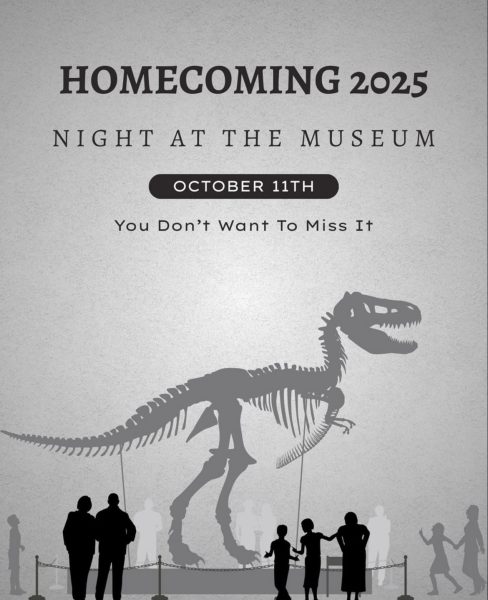Teenagers Struggle with Body Image
In high school, I see students struggle to find their own identity. Attempting to discover who you are comes with challenges which, for many, includes depression and anxiety. From this stems something I see people battle everyday, male and female, no matter social status or grade point average: body image.
Mckenna Raasch, a sophomore in high school, says, “We look at magazines and see people on TV who all look perfect all of the time and we look to ourselves and see that we, in fact, are not perfect. We see things we want to change and alter because the perception of beauty has shifted from natural to altered in every way.”
From the ages of 10 to 17, a human’s body goes through changes. High school is a time of development which may result in issues with self-esteem.
During my freshman year of high school, self-esteem was something I had daily battles with. I struggled to accept who I was (both in terms of personality and looks). I still do today. However, it has become something that I am learning to deal with.
Brandon Szpot, an Arrowhead junior, says, “Personally, if I had the power to change my genetic features, I would look almost nothing like I do today. I’ve never been fond of my appearance, and it saddens me that this is the face and body that I am stuck with.
“Body image itself, though, is toxic. In an age of progressive thinkers coming to power, you’d think that the idea of body image would stand aside for more crucial features that come from within…Although I think it’s a negative thing that we should work to combat, we can’t be surprised that it’s a primary concern for a lot of teenagers, given that physical features play an important role in evolution.”
Raasch says, “I have struggled with my own body image for years. I’m 16-years-old and every time I look in the mirror, I have an ongoing battle with myself for self acceptance. I look myself in the eye every morning and tell myself I am beautiful. I look at the things I wish to improve and tell myself they’re beautiful. Because once again, in this day and age, the standards for woman are practically suffocating. If you do not quite literally fit inside of this tiny box, you’re labeled unattractive or unappealing.”
According to Just Say Yes: Youth Equipped to Succeed, the media has a negative impact on self-image. In terms of females, the average woman weighs 23 percent more than models who are airbrushed and photoshopped.
When I reached my sophomore year of high school, I began to become more comfortable with myself. I looked in the mirror and, rather than wishing to be someone else, I smiled. I saw that beauty in myself that others told me I had. It was just hiding.
Raasch says, “I think currently in this day and age, the standards for females bodies are unrealistic. There are people who are praised for their bodies but never truly share the strenuous process of how they accomplished their body. I also think that praise is given to those who are sculpted and have tiny waists and big hips. If you are not curvy or womanly, you’re deemed as unattractive. Women live with the unnecessarily high expectation to satisfy the men.
“I’ve talked to countless young men who just haven’t peaked in their manhood and they are so deeply insecure about the fact that they can’t put on weight and be classified as muscular. They believe girls won’t think they are attractive if they aren’t cut and fit the way you see celebrities. Sure both are aesthetically appealing, but necessary for attraction? No.”
Due to the media’s influence on body image, eating disorders are common in teenagers as girls and boys alike strive to fit the ideal look. North Dakota State University says that 90 percent of women who have developed an eating disorder are between the ages of 19 and 25. Ten to 15 percent of people with anorexia or bulimia are males.
It is difficult to watch someone that you love work through an eating disorder. It is something that never goes away for them, a fear of food that sticks forever.
“I have known people with eating disorders at our age and it makes me really sad that they feel the need to change anything about them,” says Brooke O’Connor, a sophomore at Arrowhead.
According to Thomas Stuber, a guidance counselor at Arrowhead Union High School’s South Campus, the most common issues that come along with body image are stress, anxiety, depression, and eating disorders. To deal with these in a positive way, Stuber recommends developing strong areas in life and to focus on the beauty both inside and out.
“Mentally struggling with body image is a process. I have lived that process. I think if people took a step back and look in the mirror as an observer rather than the person themselves, it would allow them to see much more. Every single one of us is beautiful and every single one of us is crafted to be the way we are. Although we may not agree with it or enjoy our appearance, embrace it. Embrace it. Do not hate it. Love it and recognize that although it may not be what you want, use the power you have within you to make it what you want. For yourself,” says Raasch.
Now, as a junior in high school, I have completely accepted who I am. I know if I wish to change something about my appearance, I am capable of that. Everybody is different. I am not meant to look like the models that litter the pages of magazines, and they are not meant to look like me.
It is the people on the streets. It is the people in the hallway at school. It is that beautiful girl you saw at the coffee shop. It is that attractive boy you met at the concert. It is that alluring human who sits next to you in math class. It is these people who go home every day and struggle with body image as well, yet you see them as images of perfection. Take a look in the mirror. That captivating person you see in the mirror, that is you. Strangers see you and appreciate your beauty, and so one day you must learn to do so yourself.









